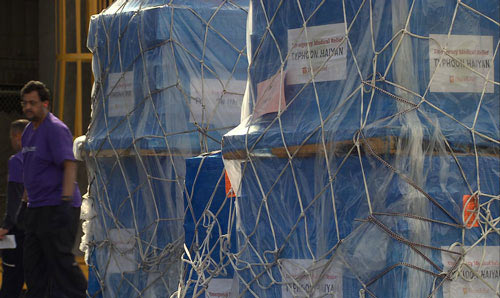The role of business in humanitarian relief
How can business help secure political stability, racial integration and economic growth in the Mediterranean refugee crisis?
Analysis of the Mediterranean refugee crisis has tended to focus on understanding its causes and critiquing the political response both at the European and nation state level.
Long term solutions

The role that business can play both in terms of providing an immediate humanitarian response and in devising long-term solutions has been widely overlooked because it is broadly assumed that humanitarian relief is a responsibility of the state and NGOs.
This oversight misses the significant role that business already plays in delivering solutions to socio-political issues, by providing finance, and product and service support, and actively working on social integration in the Mediterranean refugee crisis.
Long-term solutions
Inter-Governmental Organisations are increasingly calling upon business to take a leadership role in responding to this contemporary humanitarian crisis.
For example, the UN Global Compact, in partnership with the UN Refugee Agency (UNHCR), have launched a Business Action Pledge that calls on companies to help address not only the immediate humanitarian challenge but also be part of longer-term solutions.
Business engagement
Some of the biggest companies globally, many of whom are bigger than nation states, have responded to this call. BT, GSK, Goldman Sachs and Linklaters for example have given financial donations to humanitarian charities to provide immediate assistance to refugees.
Increasingly, however, business engagement extends beyond financial donations and business assumes a more active role beyond this traditional form of engagement. Unilever and UPS for example are using their core business capacities to provide product and logistic solutions.
Examples
- The UPS Foundation, in collaboration with the United Nations High Commissioner for Refugees (UNHCR) and the World Food Programme (WFP), is providing relief shipments to refugees in Greece.
- Linklaters are providing pro bono legal support to organisations supporting refugees. Other companies are working on social integration.
- PwC are facilitating community integration through cultural events, sports programmes and language lessons.
- Siemens is providing 100 refugee places on its internship program and accommodation for a further 500 refugees in Germany.
These types of engagement represent a major shift in thinking both about humanitarian relief and the role of corporations in society. Indeed, the role of the private sector in shaping the future of humanitarian relief was a key focus of the first World Humanitarian Summit in May 2016.
Future funding
It is therefore very timely that HCRI and the Alliance Manchester Business School, Business and Human Rights Initiative have secured strategic funding for an exploratory study of the role of business in securing political stability, racial integration and economic growth in the Mediterranean Refugee Crisis and how this engagement might shape humanitarian governance in the future.
